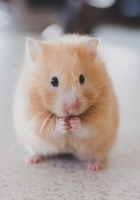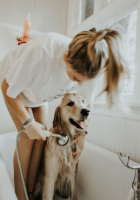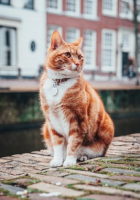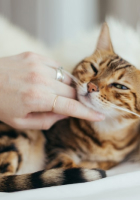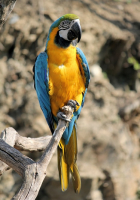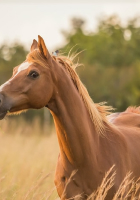Any rabbit owner you encounter will tell you that bunnies are just as cheerful, cuddly, and intelligent as a dog or cat. However, unlike other pets, they are a bit more high-maintenance and require daily care. Also, to make matters more complicated, different breeds come with varying personality traits and care requirements.
For example, some bunny breeds like to cuddle, while some will hop away if you try to hug them. First-time owners should consider which breed they intend to adopt and learn as much as possible to provide proper care.
Owners should consider each breed’s susceptibility to health concerns. Some breeds tend to have higher risks of contracting certain conditions, such as malocclusion (the misalignment of the top and bottom rows of teeth when the jaw locks).
Other breeds just have regular rabbit health concerns such as overgrown teeth (they constantly chew things), ear mites, and susceptibility to fly traps (when flies lay eggs in their fur—especially in dirty housing environments).
As long as you give your pet rabbit the proper care and attention, he/she will make a great, loving pet. Let’s take a look at the different domestic rabbit breeds and their care needs.
Rabbit Breeds
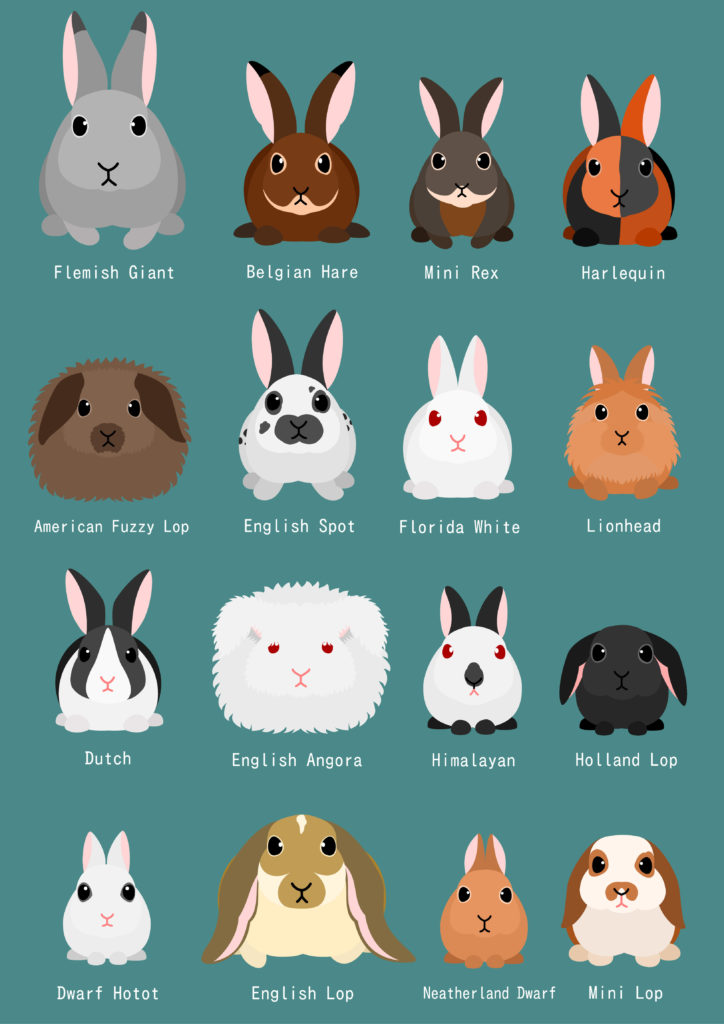
Mini Rex
- Size: 3.5–4.5 lbs.
- Rabbit Lifespan: 5–7 years
- Features: Long, upright ears, and stubby necks. Short, soft, and dense fur (can be a variety of colors). Rexes generally have curved backs and strong shoulders.
- Temperament: Normally very calm and peaceful but may stir if handled too tightly.
- Ease of Care: Less grooming is needed due to their shorter fur.
- Adaptability With Children: Usually friendly with kids, providing they are handled with care.
- Health Concerns: Minimal – standard rabbit concerns.
Holland Lop
- Size: 2–4 lbs.
- Lifespan: 7–14 years
- Features: Wide, floppy ears with medium-length fur in split or solid coloring.
- Temperament: Very active and friendly but will not tolerate being picked up and handled. They are a delight to play with but can also be a little stubborn when it’s time to get in and out of their cages.
- Ease of Care: Sheds a lot in the summer periods, so requires more brushing during that season. Let them out to roam outside fairly often.
- Adaptability With Children: They probably aren’t the most suitable breed for large families with many children. While they usually get along well with children, they will fight if they don’t feel like being held, so be sure to keep an eye out during playtime.
- Health Concerns: Minimal— standard rabbit health concerns
Dutch Rabbit
- Size: 4–5.5 lbs.
- Lifespan: 5–8 years
- Features: Unique black and white coloring and a wedge of white fur up the front of their face. Dark ears and bottoms and white well-developed shoulders, belly, and front legs.
- Temperament: Usually peaceful and gentle but will easily get sad if left alone in their cages too long. Very friendly and sociable.
- Ease of Care: Sheds a lot in summer periods. Needs to be able to run outside often.
- Adaptability With Children: Friendly and easy-going with children.
- Health Concerns: Minimal – standard rabbit health concerns.
Dwarf Hotots
- Size: 2.5–3.5 lbs.
- Lifespan: 7–10 years
- Features: Relatively small breed with short, upright ears. Very notable all-white coat with shaded spots around the eyes. Dwarf Hotots are prized mostly for their unusual yet beautiful coloring.
- Temperament: Loving and friendly. Requires daily human interaction. Very responsive to being handled frequently.
- Ease of Care: Do fine in tinier cages than most breeds due to their diminutive size. The food portion needs to be supervised so that they don’t overeat.
- Adaptability With Children: Bond well to their parents, making them exceptional pets for kids. Because they are so active, they do well with older children as well.
- Health Concerns: Higher-than-usual risk for a malocclusion.
Mini Lop
- Size: 4.5–6 lbs.
- Lifespan: 5–10 years
- Features: Rounded body with large, heavy ears and a big head. Solid or split patterned fur in a wide variety of colors.
- Temperament: Easily trained and enjoy cuddling and human interplay, including being pet and handled. They are remarkably spirited and cheerful. Mini Lops are great for households looking to adopt a litter-trained bunny pet.
- Ease of Care: Needs to be able to roam out of their places. More likely to chew on furnishings and objects than other breeds.
- Adaptability With Children: Amazingly sweet and amiable, making them excellent pets for children. They are very friendly with other rabbits and critters around the house, but if they had to choose, they’d go for calmer children. This breed needs cerebral stimulation, so put plenty of fun toys in their cage for them to play with.
- Health Concerns: Minimal – standard rabbit health concerns.
Mini Satin
- Size: 3–4.5 lbs.
- Lifespan: 5–8 years
- Features: Uniquely soft and shiny coat in a variety of patterns and shades. Short, rounded body with a large head.
- Temperament: Gentle and tender but can squirm around unfamiliar humans.
- Ease of Care: They don’t require as much space as other breeds, making them ideal for smaller homes or apartments. Not as active as most breeds.
- Adaptability With Children: Due to their timid temperament, they aren’t the most fitting pets for kids. However, over time, they can grow to like the presence of children. They can get moody, so be sure to talk about that with the breeder before committing to a Mini Satin if you have a lively house.
- Health Concerns: Minimal – standard rabbit health concerns.
Netherland Dwarf
- Size: 1.1–2.5 lbs.
- Lifespan: 10–12 years
- Features: Very small rabbit breed with short ears.
- Personality or temperament: Timid but usually friendly. They fancy human interaction but only in a setting where they feel safe.
- Ease of care: Need plenty of space and daily exercise.
- Adaptability with children: Not the most ideal pets for children because of their shy and timid nature. They are, however, excellent companions for adults with incapacities.
- Health concerns: Highly susceptible to a malocclusion.
Polish Rabbit
- Size: 2.5–3.5 lbs.
- Lifespan: 5–6 years
- Features: Short, flyback fur in six notable colorings (ruby-eyed white, blue-eyed white, black, blue, chocolate) and broken pattern.
- Temperament: Cuddly, gentle, and loving. They are super friendly and tend to be remarkably laid back. Owners can train them to use a litter box.
- Ease of Care: They do fine with smaller enclosures due to their diminutive sizes. Should remain indoors. They are less active than most breeds, meaning they’re ideal for apartments and small homes.
- Adaptability With Children: Tender with children and overall great friends. However, their small size makes them easy to be dropped, so be sure to keep an eye out during playtime.
- Health concerns: Minimal – no health issues beyond common rabbit concerns.
Lionhead Rabbit
- Size: 2.5–3.5 lbs.
- Lifespan: 7–10 years
- Features: Unique flyaway coat, with long, unruly fur around their head and rear.
- Temperament: Active, loving, and like to play. Love to be picked up and held.
- Ease of Care: Need a lot more grooming and fur care than other breeds because their fur gets easily matted or tangled.
- Adaptability With Children: One of the best pets for children due to their very amenable nature.
- Health Concerns: Minimal – no health issues beyond common rabbit concerns.
Jersey Wooly
- Size: 1–3 lbs.
- Lifespan: 7–10 years
- Features: Tiny, short ears, and very small bodies with long and wooly fur. Their square heads give them a unique yet adorable look.
- Temperament: Calm and easy-going. Rarely kick or bite.
- Ease of Care: Require constant and attentive grooming and care. Don’t need a lot of space due to their small size.
- Adaptability With Children: Especially good with children due to their easy-going nature.
- Health Concerns: Slightly higher-than-usual risk of the wool block due to their long coats.
Other Rabbit Breeds
- Californian
- Harlequin
- Havana
- Standard Chinchilla
- Himalayan
Takeaway
Getting a cute pet rabbit might look easy. What could you go wrong, you ask? There are almost 50 rabbit breeds identified by the American Rabbit Breeders Association. While many of them make excellent house pets, not all of them fit the description for first-timers or families with children. Choose wisely!
